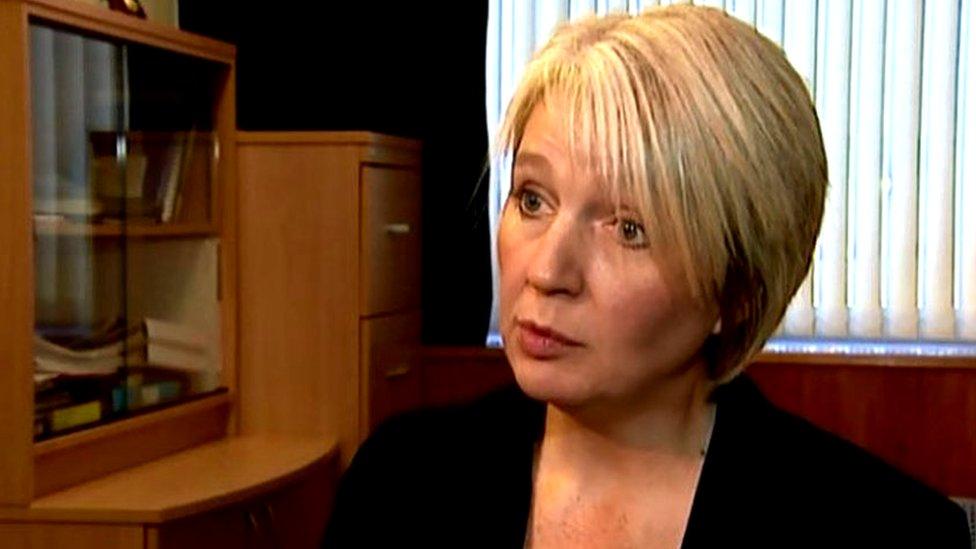Online child sexual abuse 'not given police priority'
- Published

Police Scotland does not give enough priority to tackling online child abuse, government inspectors say.
HM Inspectorate of Constabulary in Scotland (HMICS) said the force's work was under-resourced and lacked an "overarching strategic response".
An official report, external said there were also "real challenges" in capturing the true nature and extent of abuse.
Police Scotland said it remained committed to "keeping children safe and building safer online communities".
The HMICS report also warns of the serious risk of so-called vigilante groups.
It has now made 10 recommendations for Police Scotland, which includes calling on the force to:
Improve the means by which the scale and nature of online child sexual abuse is assessed
Undertake a strategic threat assessment to accurately identify the scale, nature and threat to children from online child sexual abuse
Work with the National Crime Agency to ensure intelligence is shared effectively
Review the capacity and capability to conduct undercover online covert operations in support of policing priorities.
Following publication of the report, HMICS chief inspector Gill Imery said the scale of the challenge in tackling online child sex abuse "cannot be met by law enforcement alone".
She said: "I believe there should be more consideration of rehabilitation and treatment interventions for some offenders, allowing the police to focus on those who pose the greatest risk to children."

HMICS chief inspector Gill Imery said officers found it difficult to record the true extent of abuse
The review found the way in which reports of crime were recorded made it difficult for police to understand the level of offending online.
Vigilante groups, known as Online Child Abuse Activist Groups, which are unregulated and untrained were also identified as a risk.
Undercover officers
Mrs Imery said: "One of the main proactive tactics would be to deploy undercover online specialist officers, however this does not often happen.
"If Police Scotland had a more robust approach to its proactive capability, the opportunities for Online Child Abuse Activist Groups to operate would reduce."
The review highlighted that online child sexual abuse "rarely features as a priority when specialist resources are being allocated".
HMICS has suggested that specialist support functions should focus "on those most in need of protection rather than the more traditional focus on drugs and firearms".
'Continue to invest'
Police Scotland deputy chief constable, Malcolm Graham, said the force would "carefully consider" the HMICS recommendations.
He added: "Protecting children in Scotland is a top priority and we know that reports of online child sexual abuse, committed by sexual predators here in Scotland and worldwide, continue to rise exponentially.
"Cyber-enabled crime is placing an ever-increasing demand on policing in Scotland and elsewhere.
"It is essential in an ever-increasing digital world, despite limited funding, we continue to invest in both resources and new technologies to support our officers, giving them the best tools and confidence to keep pace with what is a complex area of investigation.
"Our officers investigate online sexual abuse on a daily basis and are as vital a part of frontline policing as the officers who patrol our streets."